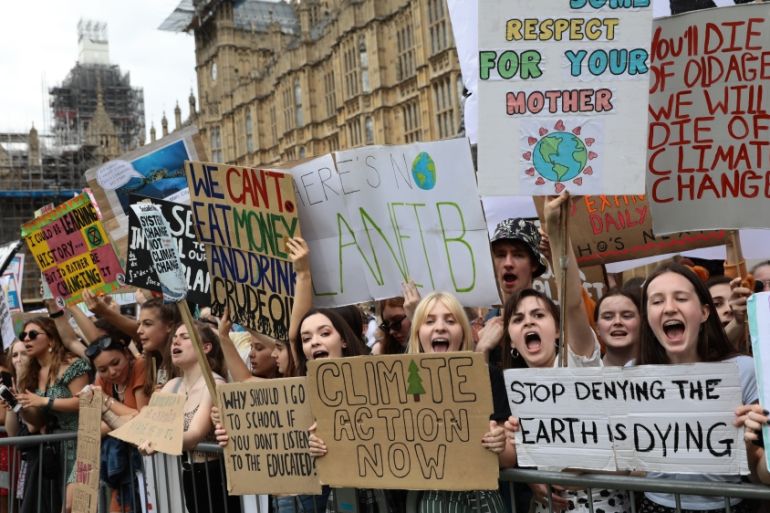After Europe, eco-conscious ‘flight shaming’ could hit US
International Air Transport Association chief says movement will later spread to advanced Asian airlines.

This summer, United States airlines have enjoyed booming flight demand, immune to a Swedish-born “flight shaming” movement that has hit air travel in Europe, where environmentally-conscious travellers are choosing trains over planes.
But the head of global lobby International Air Transport Association (IATA) says the environmental challenge, which he called the biggest threat to the airline industry in Europe, “will probably come to other parts of the world, especially North America.”
Keep reading
list of 4 itemsRainfall set to help crews battling wildfire near Canada’s Fort McMurray
The Alabama town living and dying in the shadow of chemical plants
How India is racing against time to save the endangered red panda
“If you believe or think that the environmental concern is a world concern touching everyone on the planet … there’s no reason to believe that other young people won’t react,” Alexandre de Juniac told journalists on Tuesday.
De Juniac later acknowledged to Reuters that the lack of a viable train alternative in the US was a big hurdle to a US movement, but noted the rise of progressives promoting plans like the Green New Deal, which includes investment in high-speed rails.
The movement will spread in the US and then move on to advanced countries in Asia like South Korea and Japan, de Juniac predicted.
The more anti-aviation sentiment grows, the more eager governments are to tax the industry, he said.
In July, France announced a tax on airlines flying from its airports to help support the environment, a move that Air France said would significantly hurt its competitiveness and add over 60 million euros ($65.87m) in additional costs per year.
Commercial flying accounts for about 2.5 percent of global carbon emissions today but without concrete steps to alleviate the problem, that number could rise as global air travel increases.
The aviation industry has already cut carbon emissions from each plane traveller in half since 1990, largely thanks to more fuel-efficient aircraft, and has a plan to cut net emissions by 2050 and achieve carbon-neutral growth from 2020.
The challenge now is to enforce and implement the goals, and win over the sentiment of a portion of the flying public that de Juniac said wants to be reassured that the industry is “doing the right things.”
Activists advocating for zero-carbon travel are increasingly passionate and effective. In August, Swedish teenage climate activist Greta Thunberg crossed the Atlantic in a racing yacht to avoid travelling by air to take part in a United Nations summit.